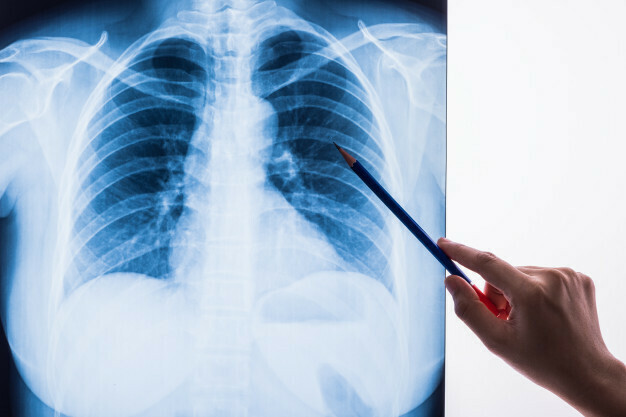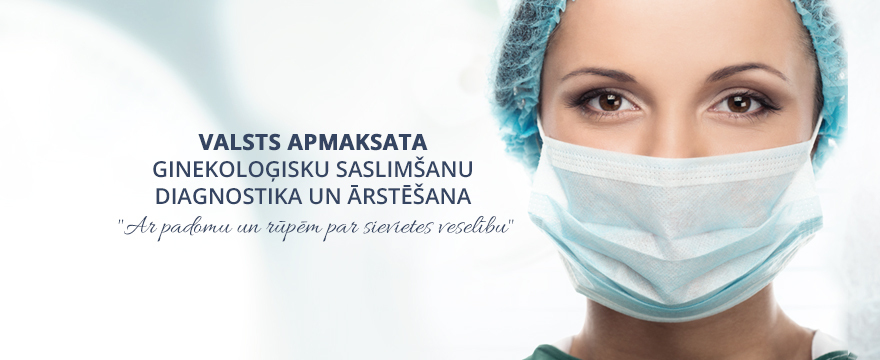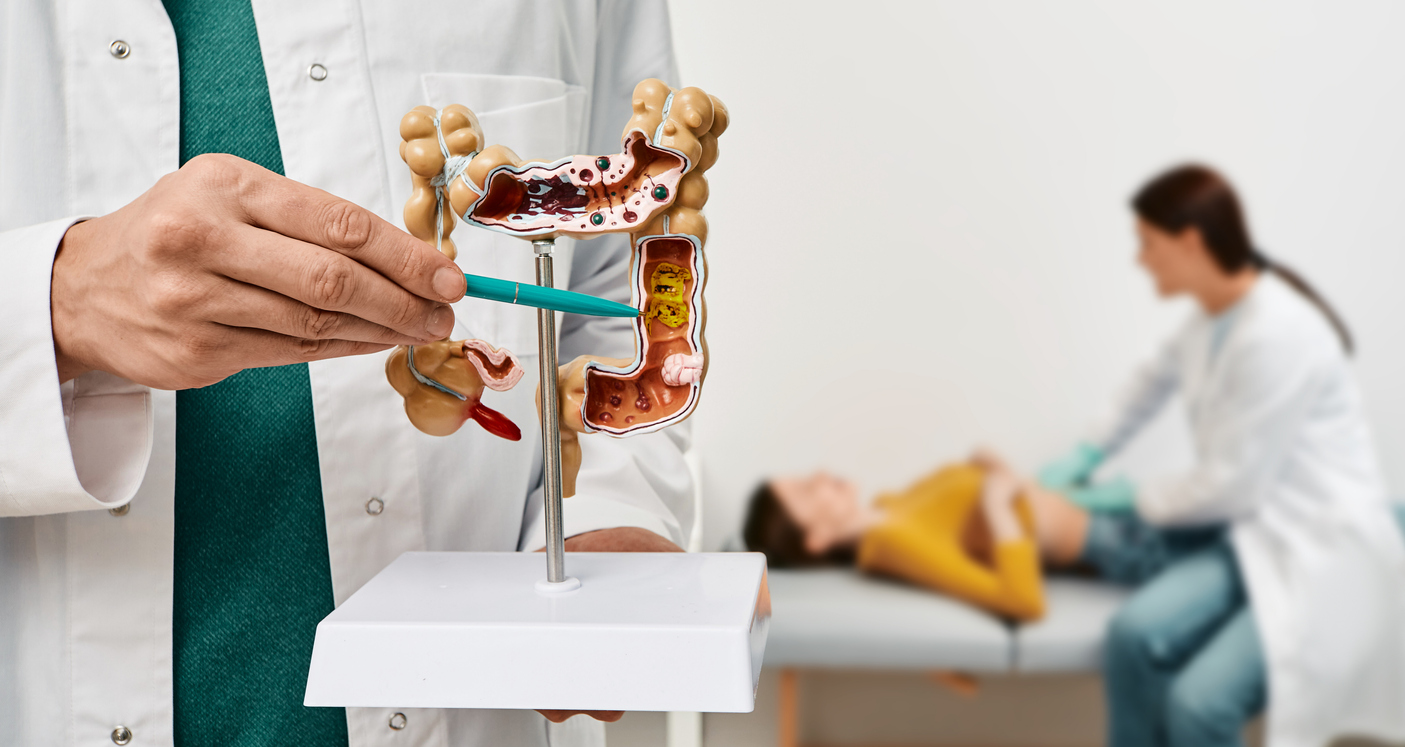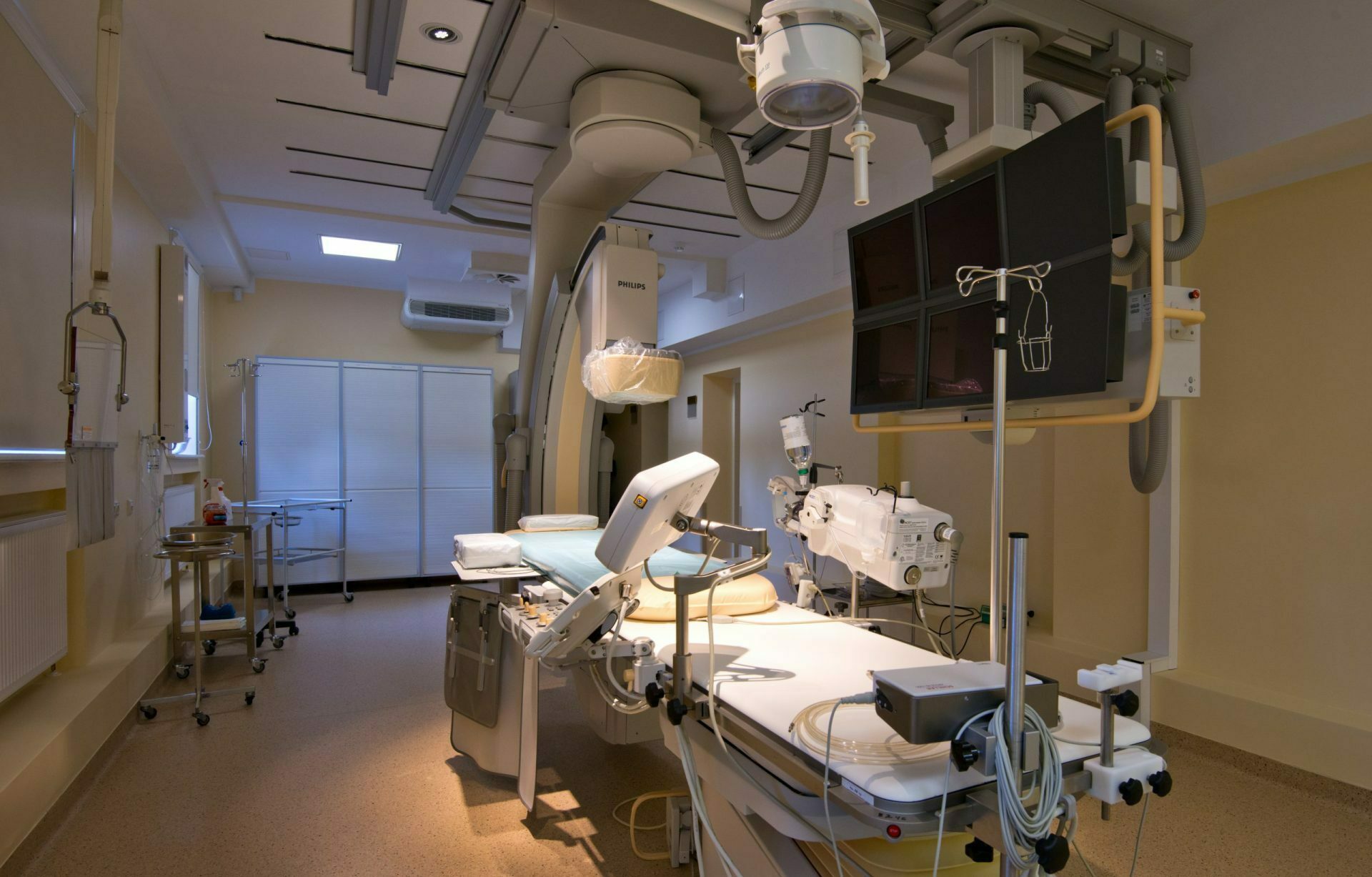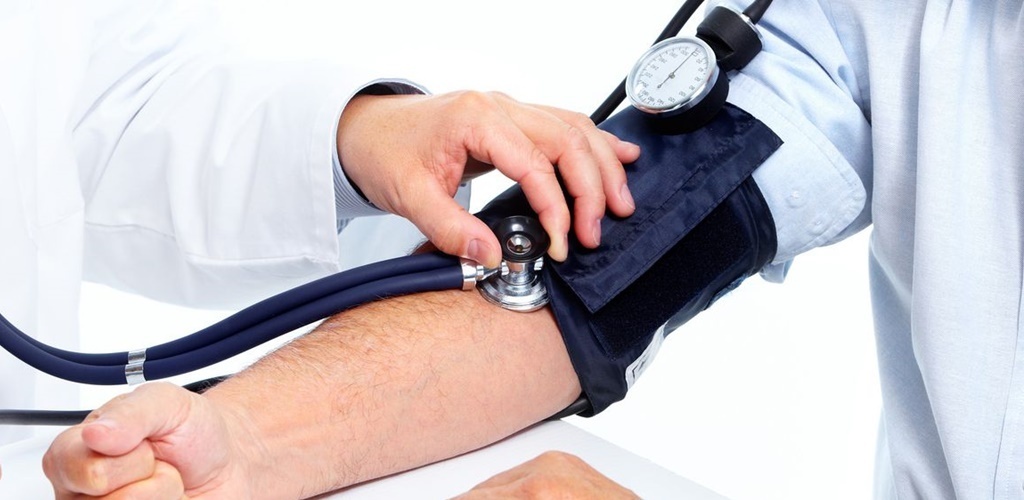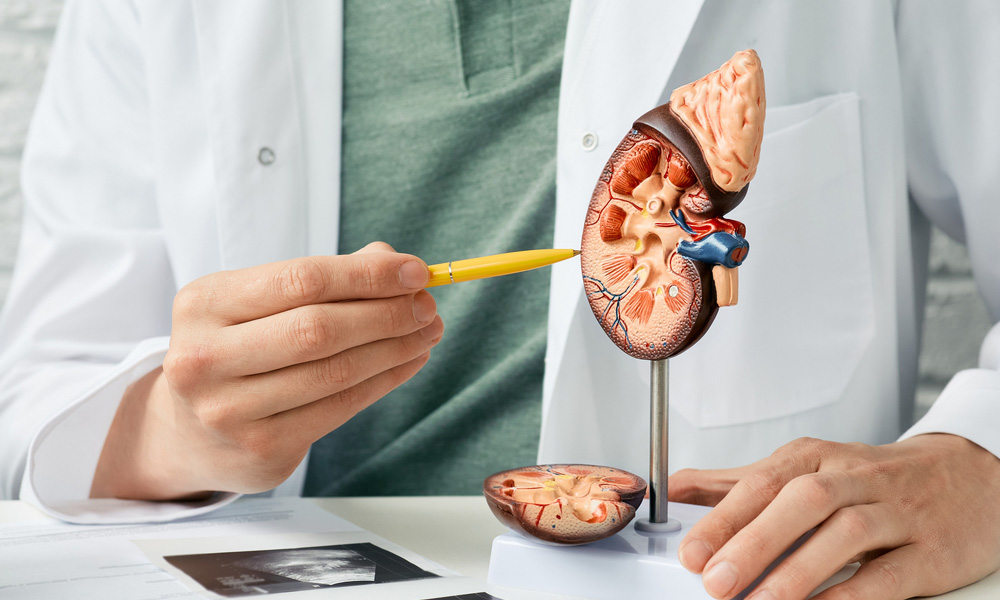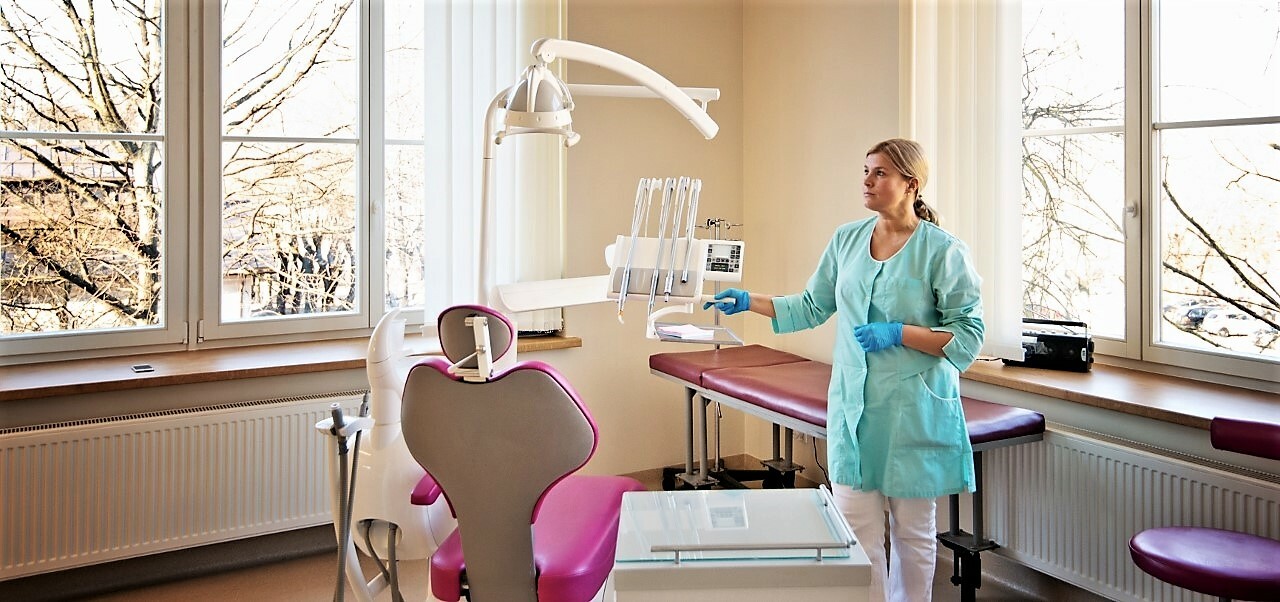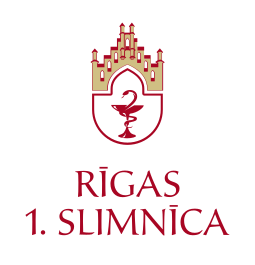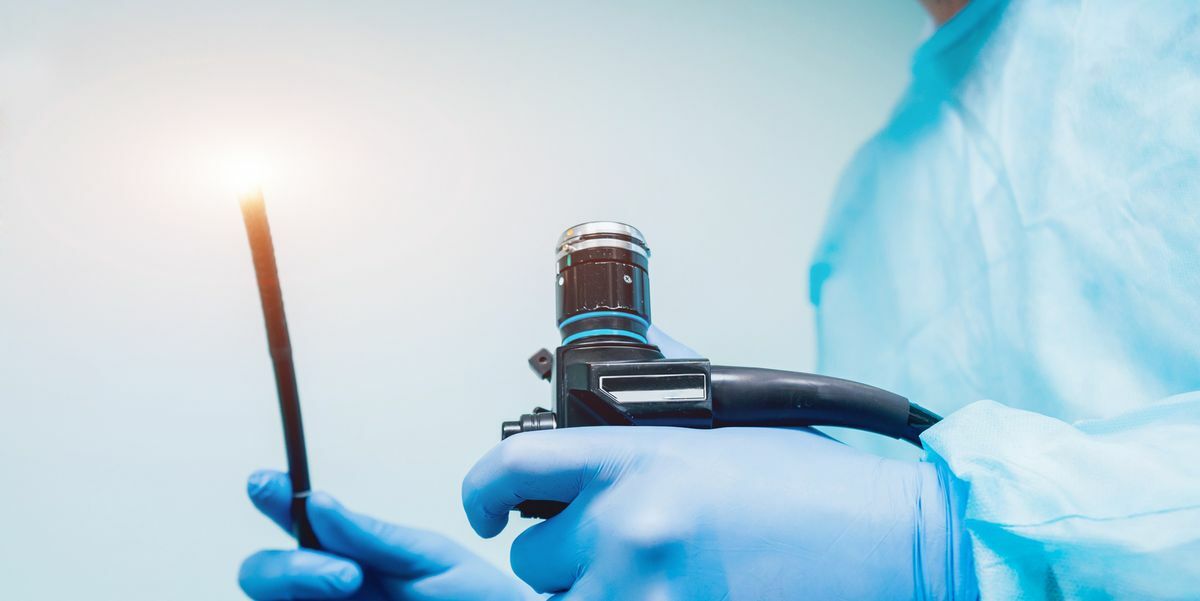
Colonoscopy or lower gastrointestinal endoscopy (FKS) is a diagnostic and/or therapeutic procedure using an endoscope to examine parts of the digestive system, including the rectum, sigmoid colon, descending colon, transverse colon, ascending colon, cecal dome, ileocecal valve, and the distal part of the small intestine. Get your colonoscopy done at Riga 1st Hospital!
What is colonoscopy?
Lower gastrointestinal endoscopy is also known as colonoscopy, rectocolonoileoscopy, or fibroscopy (FKS). It is performed by an endoscopy specialist using modern video endoscopy equipment for diagnosing and treating the gastrointestinal tract.
Colonoscopy (FKS) – the “gold standard” for colorectal cancer diagnosis
Colorectal cancer is a malignant tumor that initially develops in the colon or rectum. Statistics show that colorectal cancer is most common in women and men aged 50 to 74.
Colonoscopy is the most sensitive and specific examination for diagnosing adenomatous polyps and cancer in the colon.
When is it necessary?
Colonoscopy (FKS) is necessary if:
- Over the last 4-5 weeks, bowel movements have become irregular, alternating between diarrhea and constipation, or if bowel movements have become difficult and painful.
- Stool contains blood or mucus.
- There is unexplained weight loss and weakness.
Colonoscopy at Riga 1st Hospital
Indications for scheduled colonoscopies include diagnosing colon tumors (colon cancer and adenomas) and other diseases, in cases such as:
- Positive results for occult blood in the stool
- Suspicious findings in other colon imaging tests
- Symptoms of colon cancer (even if X-rays are negative)
- Patients in risk groups for colorectal cancer
- Colonoscopy is the only endoscopic examination that serves as a screening method for diagnosing colorectal adenomas and cancers
- Polyposis, i.e., hundreds of polyps in the colon
- After ureterosigmoidostomy, as cancer risk increases after 10 years
- After surgeries for gynecological tumors and after radiation therapy
- Inflammatory bowel diseases (ulcerative colitis and Crohn’s disease)
The Endoscopy Department at Riga 1st Hospital is equipped with:
- 3 modern examination rooms
- 2 specially equipped rooms for instrument disinfection
- A recovery room for patients post-anesthesia
A colonoscopy at Riga 1st Hospital is performed by an endoscopy specialist with a referral from a family doctor or specialist. The procedure is conducted under general anesthesia, with an anesthesiologist and nurse present. The examination lasts 20-30 minutes.
The outcome of the examination depends not only on highly qualified personnel and modern technical equipment but also on the patient’s involvement, which is ensured by proper patient information and preparation for the examination.
Timely patient information and preparation enhance the quality of the endoscopic examination and ensure collaboration between the medical staff and the patient.
The process explained in three stages
1. Before the procedure
Important to know:
- For 2-5 days before the procedure, reduce the intake of fiber-rich foods such as whole grain bread, seeds, fruits, vegetables, roots, and nuts.
- Consume more liquid foods, such as soups.
- The last meal should be 24 hours before the examination.
- Regular medications can be taken until the day of the examination, except for iron supplements, which should be discontinued 5 days earlier.
To prepare for the colonoscopy, you should use the prescribed laxatives according to the given instructions.
2. During the procedure
A colonoscope is a flexible tube equipped with a video camera and light source. It has a control panel for performing various procedures, such as taking a tissue sample for biopsy. To ensure a quality examination and patient comfort, medications for general anesthesia are administered intravenously.
If tissue changes are detected during the examination, or if suspected, a biopsy may be taken for microscopic examination. In some cases, small tissue changes (polyps) may be removed using special metal loops and electrical current.
3. After the procedure
Important to know:
- After waking from anesthesia, there may be discomfort or gas in the abdomen, which usually subsides quickly.
- Medical staff will monitor the patient for about 30 minutes after the procedure.
- Regular eating habits can be resumed immediately after the colonoscopy.
- The doctor’s conclusion is provided immediately after the examination.
- For 12 hours after anesthesia, you are not allowed to drive a vehicle, so it’s advisable to have someone accompany you home.
Complications
Thanks to technological advancements and the experience of doctors, complications during the procedure are rare. However, the following complications are possible:
- Bleeding
- Bowel perforation
- Unforeseen allergic reactions to medications.
In Riga 1st Hospital, colonoscopy is performed by professional gastroenterologists, who have been praised by patients. If you want to perform a colonoscopy in a modern environment and under the supervision of experienced doctors – choose Riga’s 1st hospital!
Other related services
